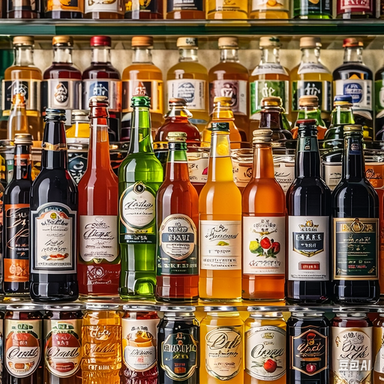
Functional requirements: Determine the functional requirements of the bottle based on the characteristics of the packaged product. For example, for volatile substances, good sealing is required; For products that need to be stored in dark, dark or specially coated glass may be required.
Capacity and size: Consider the usage scenarios and consumer habits of the product, design appropriate capacity and size to meet different market demands.
Appearance design: Pay attention to the aesthetics, uniqueness, and attractiveness of the shape, so that it can stand out on the shelves and attract the attention of consumers.
Ergonomics: For example, comfortable grip, easy to tilt or open, convenient for consumers to use.
Material quality: Choose high-quality glass materials to ensure their strength, transparency, and chemical stability, in order to ensure the quality and safety of the product.
Environmental sustainability: Pay attention to the recyclability of materials and the environmental impact during the production process to meet the requirements of modern society for environmental protection.
Cost control: optimize design and production processes, reduce costs, and enhance product market competitiveness while ensuring quality and functionality.
Printing and labeling: Consider how to perform clear and long-lasting printing and labeling on glass surfaces to provide accurate product information and brand promotion.
Safety: To prevent damage caused by bottle breakage, especially during transportation and use.
Innovative technology application: such as using new glass manufacturing processes, coating technologies, or intelligent sensing technologies to increase the added value of products.

Food and Beverage Industry:
Alcoholic beverages, such as wine, champagne, spirits, etc., need to be able to showcase the color and quality of the wine, while also having good sealing and oxidation resistance.
Juice and beverages: For carbonated beverages, they should be able to withstand internal pressure; For freshly squeezed fruit juice, it is necessary to ensure freshness and prevent flavor loss.
Edible oil: It needs to have a leak proof and easy to pour design.
Cosmetics and personal care products:
Perfume: pay attention to the refinement and uniqueness of the model to reflect the brand image and high-end positioning of the product.
Skin care products: such as lotion, face cream, etc. The bottles should be easy to access and can protect the stability of the ingredients.
Shampoo and shower gel: With a large capacity, it is necessary to consider convenience and anti slip design during use.
Pharmaceutical industry:
Oral liquid: Strict hygiene standards and precise scale markings are required.
Capsules and tablets: require moisture-proof, light proof, and child protection functions.
Chemical products:
Laboratory reagents: have high requirements for chemical stability and corrosion resistance.
Industrial oils and solvents: Ensure sealing performance, prevent leakage and volatilization.
Housewear & Furnishings:
Cleaning agent: Easy to grip and control dosage, with anti accidental touch design.
Aromatherapy products: They should be able to emit fragrance while also having aesthetic appeal.
Gift Market:
Customized gift set: Design unique and exquisite bottles to increase the attractiveness and value of the gift.
Online sales and logistics delivery:
Strengthen the seismic and compressive resistance of packaging to reduce damage during transportation.
Travel and Portable Scenarios:
Introduce small capacity, lightweight, and leak proof bottles for travelers to carry easily.
Environmental recycling scenarios:
Design bottle structures and materials that are easy to classify and recycle.
Children’s products:
The packaging of children’s food or drugs must have functions of preventing accidental ingestion and safe opening.
Now you have a comprehensive understanding. If you need product ,please feel free to contact us. We have a professional team of over 13 years to provide support for your business.
Sales Manager: Ruby
Email: sales05@xzbolite.com





